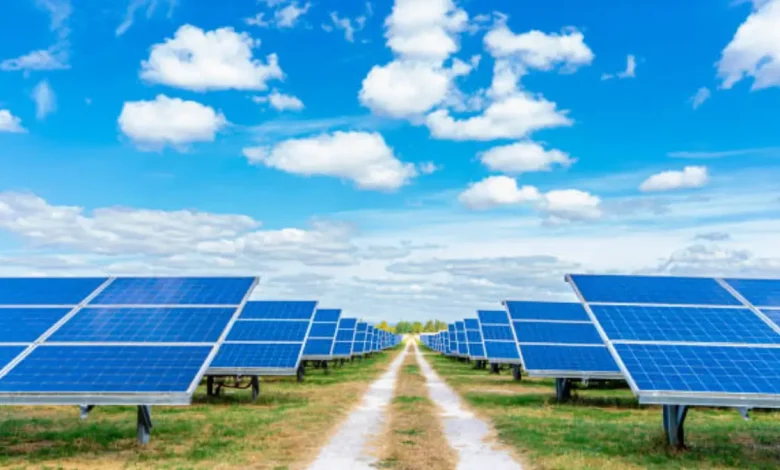What Eskom and City Power’s Push for Solar Registration Means for You

Table of contents
- South Africa’s New Solar Drive Takes Center Stage
- Why Are Eskom and City Power Urging Solar Registration?
- Who Needs to Register Their Solar Systems?
- How Does the Registration Process Work?
- What Are the Benefits of Registering Your Solar System?
- When Did the Registration Push Begin and What’s the Timeline?
- Where Does This Affect You Most?
- What Happens If You Don’t Register?
- How Will This Impact Electricity Costs and the Environment?
- What Does This Mean for South Africa’s Energy Future?
South Africa’s New Solar Drive Takes Center Stage
South Africa moves closer to a greener energy future as Eskom and City Power accelerate efforts to register solar energy users. Starting now, this push impacts homeowners, businesses, and communities across the country. This campaign unfolds during a time of rising electricity demand and frequent load shedding, making energy security more urgent than ever. By registering solar systems, consumers can contribute to national stability while benefiting personally.

ALSO READ: Eskom Reports Stable Electricity Supply Heading into Winter Peak
Why Are Eskom and City Power Urging Solar Registration?
Eskom and City Power want to manage the explosive growth of solar energy on their grids. They recognize that unregistered solar systems can cause grid instability and safety concerns. Therefore, these organizations emphasize registration to ensure reliable energy delivery. Eskom stated, “Proper registration allows us to integrate solar power safely and efficiently into the grid.” Thus, the registration program supports both consumer interests and grid health.
Who Needs to Register Their Solar Systems?
Anyone who has installed solar panels or plans to install them must register with Eskom or City Power, depending on their location. This includes residential homeowners, commercial businesses, and municipal users. Eskom clarified that failing to register can lead to disconnection or penalties. They warned, “Users who do not register put themselves at risk of losing their solar benefits as well as facing potential fines.”
How Does the Registration Process Work?
The registration process involves submitting system details, including size and installation location, through online portals or customer service centers. City Power highlighted the new system streamlines registration to make it quick and accessible. After verification, customers receive approval to officially connect their solar units. This step ensures compliance with safety and grid requirements.
What Are the Benefits of Registering Your Solar System?
Registering solar installations offers many advantages. Customers enjoy legal protection and uninterrupted power supply. Also, registered users gain access to Eskom’s incentives and technical guidance. Importantly, registration helps prevent severe technical problems like voltage fluctuations. An Eskom spokesperson noted, “Registered solar users contribute directly to stabilizing South Africa’s energy grid.”
When Did the Registration Push Begin and What’s the Timeline?
Eskom and City Power launched their registration campaigns in early 2025 amid growing concern about grid reliability. Both entities set deadlines requiring all solar users to complete registration by mid-2026. City Power stressed, “We urge residents to act promptly to avoid disruptions.” This timeline creates a clear window for compliance and preparation.
Where Does This Affect You Most?
The push affects all Eskom and City Power customers, especially those in Gauteng and major urban areas with high solar adoption rates. However, rural suppliers also encourage participation. Eskom emphasized that their goal is a uniform and safe solar integration across all of South Africa. With growing awareness, more regions will likely join registration efforts soon.
What Happens If You Don’t Register?
Ignoring registration risks immediate and serious consequences. Eskom warned that unregistered solar users may face disconnection from the grid or loss of export rights. Further, customers could lose access to technical support in case of system issues.
How Will This Impact Electricity Costs and the Environment?
Properly registered solar systems can reduce household and business electricity bills through net metering and incentives. Meanwhile, the broader rollout supports South Africa’s carbon reduction goals by increasing renewable energy use. City Power affirmed, “Our solar campaign aligns with national climate commitments and economic development through clean energy.”
What Does This Mean for South Africa’s Energy Future?
This registration drive represents a milestone for South Africa’s energy transition. It balances rapid solar adoption with the need for grid stability and consumer protection. Experts agree that Eskom and City Power’s unified approach paves the way for a more reliable and sustainable electricity supply. Ultimately, these steps promise long-term benefits for all citizens.




